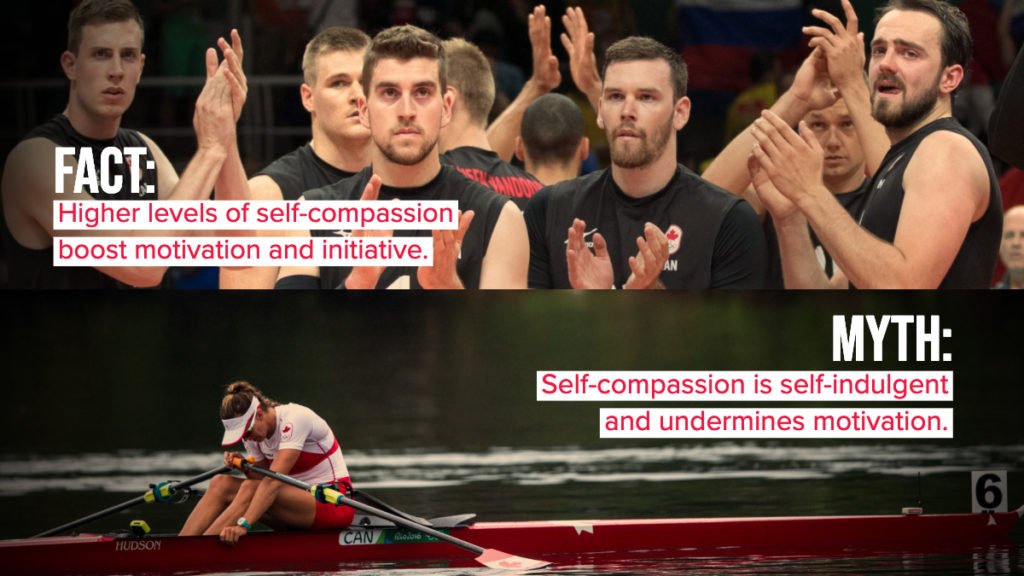UNLOCK THE POTENTIAL OF SELF-COMPASSION
When the going gets tough, what does your inner voice say? ‘Do better, improve, push the pain away?’
As high-performers, we know the voice well. We listen because this ‘inner critical coach’ is motivating, brave and can drive us to succeed. But, if the voice is too loud we risk blocking out other important messages we need to hear, says marquee contributor to the 2018 Olympic Lab mindfulness expert Peter Kirchmer.
At the Lab he challenged us to listen to our thoughts a little differently.
He suggests that when our self-critiquing thoughts and elite expectations become overbearing, we risk closing ourselves off to new possibilities and bigger opportunities to succeed. Being too hard on ourselves and/or seeking perfection can be limiting to what we can achieve.
Self-compassion, he says, is just as critical to performance and we need to find the courage to practice it.

“(We should) meet failure with kindness,” says Kirchmer. “Research suggests that self-compassion works better than perfection and can occur even in the presence of elite-level performance and standards.”
This is by no means an ‘easier’ approach, it’s just different.
Self-compassion takes strength and commitment. Learning to evaluate ourselves and realize when we are being too harsh or making inaccurate observations is honest training. The ability to recognize opportunity in a challenging situation takes discipline and maturity — and the results are real.
It’s been proven that self-compassionate people are willing to take more risks, have enhanced motivation, and have lower levels of reactive stress, Kirchmer says. Conversely, too much inner criticism has been scientifically linked with depression and higher rates of performance anxiety.
So, when our emotions are screaming, how do we make sure we hear the right voice at the right time?
FIND THE PERFECT BALANCE OF INNER CRITICISM AND COMPASSION
· Notice how you react to events: Do you fight (judgement, criticism or blame)? Do you flee (escape the thought or zone out)? Do you freeze (remain paralyzed with indecision)? Do you fix (attempt to mask)? Do you fake it (try to be seen as being composed)?
· Understand if you are generalizing (hear the difference in tone between ‘I am terrible’ verses ‘that was a terrible practice’).
· Identify if you fixate on small mistakes others may not notice?
We focus most of our preparation physically training our bodies to perform at the world-class level. In the details of these personal questions is a guide to how we can train our minds in the same way.
· Employ a growth mindset.
· Participate in regular mindfulness practice: if you become more aware of your thoughts, then you will have more control over which ones stay longer.
· Talk to yourself as you would a teammate or friend.
· Talk to your Mental Performance Consultant (MPC) about different strategies.
· Measure these changes against the impact of your self-criticism.
· Draw conclusions. What is different? How does it affect your outlook?
· Decide what you want to change about your inner voice(s).
***
It is estimated that we have around 60 000 thoughts per day. How are you going to use those thoughts? Build yourself up? Or tear yourself down? Will you make them a friend or foe to your performance?
It’s up to you.


Got something to say?